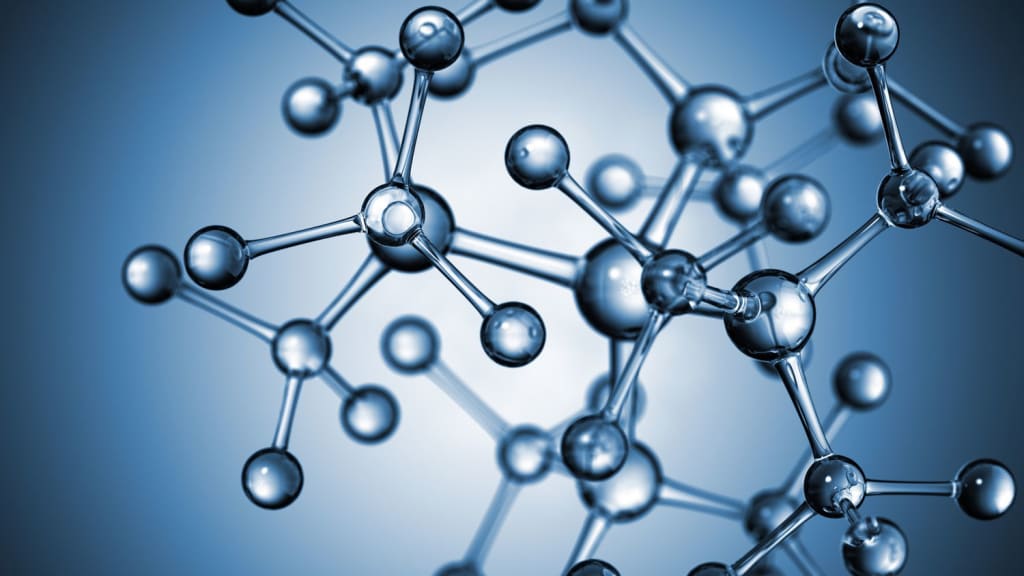
Molecules, the smallest units of matter, are the foundation of our universe. They are the building blocks of everything around us, from the air we breathe to the stars in the sky. In this article, we'll delve into the world of molecules, exploring their structure, types, and importance in our daily lives.
**What are Molecules?**
A molecule is a group of two or more atoms that are chemically bonded together. Atoms, the smallest units of elements, are the building blocks of molecules. When atoms share one or more pairs of electrons, they form a chemical bond, resulting in a molecule. Molecules can be composed of atoms from the same element (e.g., oxygen molecules, O2) or different elements (e.g., water molecules, H2O).
**Types of Molecules**
Molecules can be classified into several types based on their composition and properties.
**1. Organic Molecules**: These molecules contain carbon and hydrogen atoms, and may also include oxygen, nitrogen, and other elements. Organic molecules are found in living organisms and are the basis of life.
**2. Inorganic Molecules**: These molecules do not contain carbon and hydrogen atoms, and are typically found in non-living matter. Examples include water (H2O) and salt (NaCl).
**3. Polar Molecules**: These molecules have a positive and negative end, resulting in a slight electric charge. Water is a polar molecule, which is essential for its role in biological processes.
**4. Nonpolar Molecules**: These molecules do not have a positive or negative end, and are typically found in non-polar solvents like oil.
**Importance of Molecules**
Molecules play a crucial role in our daily lives, from the food we eat to the air we breathe.
**1. Biological Processes**: Molecules are the building blocks of life, forming the structure and function of cells, tissues, and organs.
**2. Medicines**: Many medicines are molecules that interact with our bodies to prevent or treat diseases.
**3. Materials Science**: Molecules are used to create a wide range of materials, from plastics and fibers to metals and ceramics.
**4. Energy Production**: Molecules are involved in energy production, from the combustion of fossil fuels to the photosynthesis of plants.
**5. Environmental Science**: Molecules play a critical role in environmental processes, including the water cycle, weather patterns, and climate change.
**Conclusion** Molecules are the foundation of our universe, forming the basis of everything around us. Understanding molecules and their properties is essential for advancing fields like medicine, materials science, and environmental science. By appreciating the importance of molecules, we can better appreciate the intricate complexity of our world and work towards creating a better future.
**The Future of Molecules**
As we continue to explore the world of molecules, we may uncover new properties and applications that can revolutionize industries and improve our daily lives. From developing new medicines to creating sustainable energy sources, the potential of molecules is vast and exciting. By embracing the power of molecules, we can create a brighter future for ourselves and future generations.
Nanotechnology: The study of molecules at the nanoscale has led to the development of new materials and technologies with unique properties. Nanoparticles, for example, are being used to create more efficient solar cells and to deliver targeted cancer treatments.
Synthetic Biology: The ability to design and construct new molecules has led to the development of synthetic biology, a field that combines biology and engineering to create new biological systems and organisms. This field has the potential to revolutionize industries such as agriculture, pharmaceuticals, and energy.
Molecular Computing: The development of molecular computers, which use molecules to store and process information, has the potential to revolutionize the field of computing. Molecular computers could be used to solve complex problems that are currently unsolvable with traditional computers.
Molecular Medicine: The ability to design and synthesize new molecules has led to the development of new medicines and treatments for diseases. Molecular medicine has the potential to revolutionize the field of healthcare, allowing for more targeted and effective treatments.
About the Creator
Awin Stella
hello nice to meet you,thanks for visit my profile.i am 18 years old.still young but I wish oneday I can be a good novelist.see you soon inshaallah
Enjoyed the story? Support the Creator.
Subscribe for free to receive all their stories in your feed. You could also pledge your support or give them a one-off tip, letting them know you appreciate their work.






Comments
There are no comments for this story
Be the first to respond and start the conversation.